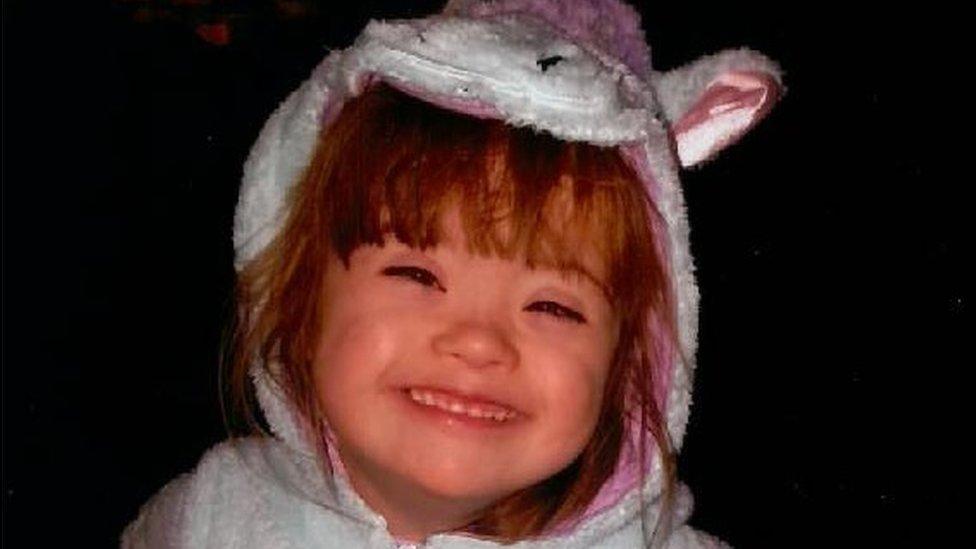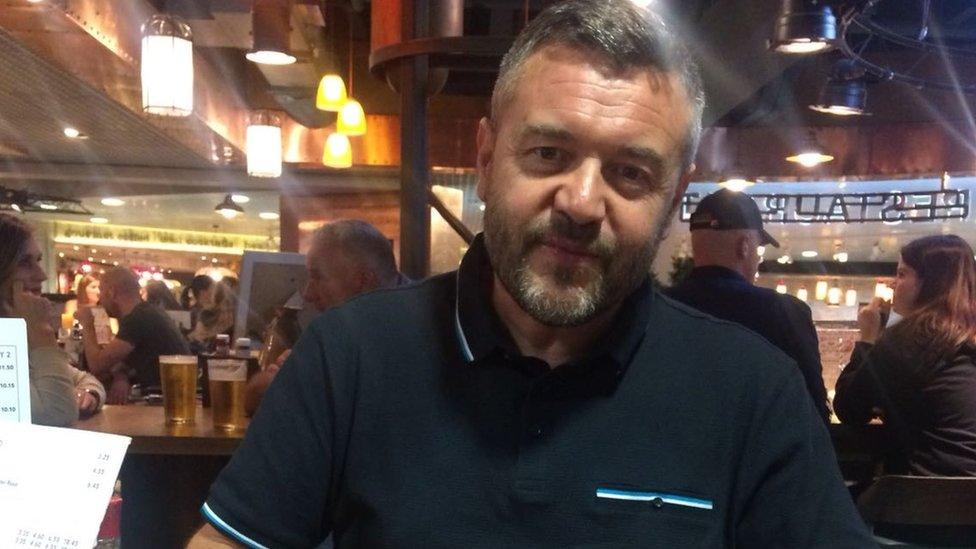Girl, 5, died after sepsis guidelines ignored
- Published

Ava's mother described her as "happy and sociable"
A five-year-old girl who died due to sepsis complications could have been saved if clinical guidelines had been followed, an inquest heard.
Ava Macfarlane died of toxic shock caused by a bacterial infection on 15 December 2017.
She had presented with symptoms when she first went to hospital two days earlier but they were not picked up.
Nottingham Coroner's Court heard she was given Calpol and ibuprofen before doctors allowed her to go home.
Ava's mother, Lesley Gearing, said she had taken her daughter, who had Down's syndrome, to Nottingham's Queen's Medical Centre on the morning of 13 December.
She said Ava had been vomiting, struggling to breath and had a high temperature. Tests showed she also had a high heart rate.
Emergency doctor Dr David Shearn believed she had a virus but after she was observed over a number of hours, another doctor sent her home.
Red flags missed
Dr Shearn admitted Ava had been showing at least two "red flags" of sepsis and if he had followed guidelines from the National Institute for Health Care and Excellence and the Sepsis Trust, then the infection would have been picked up earlier.
When asked by Assistant Coroner Laurinda Bower whether the "failure to follow the Sepsis 6 Pathway contributed to her death", he replied "it probably did".
"I think earlier treatment of the infection may have improved her chances of survival," he added.
Instead she became worse overnight and was rushed back to hospital.
According to Dr Shearn, there has since been an education drive and mandatory training about sepsis for staff.
But he also admitted he had colleagues who would still adopt a "watch and wait" approach to a child who came in with a high temperature and a raised heartbeat rather than immediately start treating them for sepsis, despite best practice guidelines.
He said this was because they did not want to "over treat" every child who arrived with the symptoms.
The inquest continues.

Follow BBC East Midlands on Facebook, external, on Twitter, external, or on Instagram, external. Send your story ideas to eastmidsnews@bbc.co.uk, external.
- Published12 July 2019

- Published11 July 2019

- Published4 July 2019
